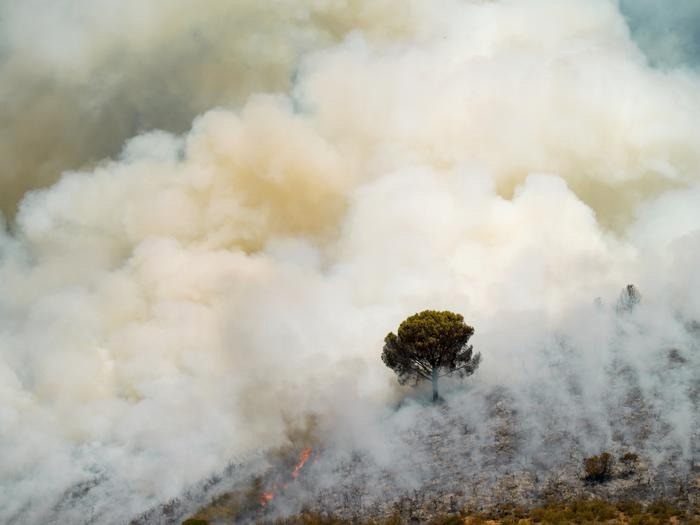According to a study from the University of Cordoba, controlled burning has a short-term impact on soil qualities that are only marginally altered, if not actually enhanced.
 A moment during the controlled burning. Fotography of Elisa Vega Martínez. Image Credit: Fotography of Elisa Vega Martínez
A moment during the controlled burning. Fotography of Elisa Vega Martínez. Image Credit: Fotography of Elisa Vega Martínez
The frequency of significant forest fires, which garner the most attention and have the greatest environmental impact, has increased despite the fact that the number of forest fires has decreased in recent years due to factors like climate change and changes in land use (such as the abandonment of land in rural areas due to migration to cities).
There are conflicting views on the use of fire to manage forests due to their unpredictable nature and, more importantly, the potential negative effects they could have on the ecosystem.
Evidence reveals that fire, when utilized in a regulated manner and according to a predetermined plan, is a successful preventative forest management strategy, as the soil’s functional qualities are only little affected or even enhanced, at least temporarily.
These are the conclusions drawn from a study that was published in the journal Science of the Total Environment by the Edaphology Unit at the Mara de Maeztu Unit of Excellence–University of Cordoba (DAUCO) Department of Agronomy and the UCO Forest Fire Laboratory.
In an area of Los Boquerones (Villaviciosa de Córdoba) with Mediterranean scrub and gum rockrose as its main species, the research team conducted a controlled and high-intensity burning with a demarcated perimeter and flames of over two meters (sometimes reaching 10). This was done with the assistance of the Andalusian Forest Fire Extinguishing Service (INFOCA).
Analyses of soil samples taken before, two hours after, and eight months after the fire revealed that properties like pH (by more than two points), the availability of plant nutrients (phosphorus, nitrogen, and micronutrients like zinc and iron), fertility, biological characteristics, and electrical conductivity of the soil all increased immediately after the fire.
Evaluations conducted eight months after the soil had been altered by everyday environmental factors on the soil showed that its physical-chemical and biological qualities had returned to its pre-burn levels.
Controlled burning does not have a negative effect on the soil in the short term, such that this type of tool can be used without generating serious effects.
Elisa Vega Martínez, Researcher, University of Cordoba
Forest soils, in the words of UCO researcher Antonio Rafael Sánchez-Rodriguez, “are the basis, sustenance, and beginning of life,” hence, this is crucial. Additionally, because of the lower depth and the high temperatures, burning of organic material, buildup of ash, and erosion caused by fire, they are directly impacted.
In contrast to uncontrolled fire, there is another sort of beneficial fire: one that is managed and has a specific goal (such as reducing fuel use, creating grasslands, or preserving biodiversity). The study team has confirmed that they have no major (unfavorable) impact on soil health.
Journal Reference:
Vega-Martínez, E., et al. (2023) Spatio-temporal assessment of soil properties immediately and eight months after a high intensity-controlled burn in the south of Spain. Science of the Total Environment. doi:10.1016/j.scitotenv.2023.165368